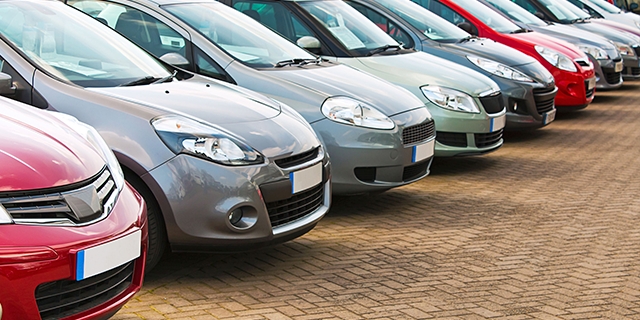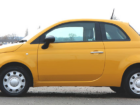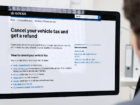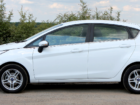Looking to purchase a car? Buying a used car will not only save you money on the purchase price but it may also help you avoid losing money through early depreciation.
You may know that a brand new car will lose twenty per cent of its value as soon as you sign on the dotted line, but it’s also likely to lose another ten per cent in its first year through general wear and tear.
Through buying a used car, you’ll also benefit from lower car insurance rates and avoid any new vehicle registration fees.
Although it makes sense financially, it can seem a daunting process, so we’ve created this useful guide to help you through the process.
Does it have all the necessary documents?
First things first when purchasing a used car – the seller will need to provide you with a watermarked V5C registration document.
Check that the vehicle identification number (VIN), engine number and colour match what’s on the document, that it’s free of spelling mistakes and that their name is listed as the registered keeper.
Without this document, you won’t be able to get the car taxed so if the seller can’t provide one they will need to apply for a replacement from the Driver and Vehicle Licencing Agency (DVLA), which can take up to six weeks.
The car must also have a current MOT certificate if it is more than three years old and the seller will need to provide the MOT certificate.
You can find out the vehicle’s registration number, road tax due date and current MOT certificate expiry date by visiting gov.uk.
You can also check the results of the cars previous MOT tests by visiting clicking here.
Carrying out these preliminary checks could save you a lot of hassle further down the line. Find out how to replace any lost car documents here.
Look for signs of accident damage
It may seem obvious but bad weather and darkness can hide a lot of damage so try to arrange your visit with this in mind.
Remember to take your time walking around the car. Look for mismatched colours or an uneven paint finish, gaps between panels, or paint where there shouldn’t be. These can all be signs of an accident and a heavy repair job.
Small dents or scratches aren’t too costly to fix but you should use this to negotiate the price so you’re not left out of pocket.

Check the mileage adds up
The mileage shown should be something you would expect for the age and appearance of the car and should have increased steadily year on year; you can check this on service records and MOT certificates.
If something doesn’t add up then look for any signs that the odometer might have been tampered with such as worn screws or fingerprints on the inside of the glass.
Do some basic safety checks
To avoid having to replace the tyres of a used car any time soon, get on your hands and knees and check that they have at least 3mm of tread left, that they’re all matching and if they’re in good working condition.
Is there a spare wheel available?
Check the seatbelts are all there, that they’re free of fraying or cuts and that they all work as expected and give the lights, windows, sunroof and windscreen wipers a go.
Lastly, check that warning lights for airbags work as described in the handbook and that they come on and turn off when they should.
Give it a spin
When you start the engine and find the biting point, listen out for any abnormal noises that could indicate a need for repairs.
Use the car as you would normally, which means giving the radio, air conditioning, heating and navigation system a whirl.
Pay particular attention to what happens when you break – does it take a long time to stop? Did you need to put in more effort than necessary? Was the handbrake effective?
When buying a used car, it’s always important to do your own research and carry out thorough checks so you can be sure that what you’re buying is still going to be a good deal further down the road.
But most importantly, trust your instincts and don’t be afraid to walk away if the price isn’t right.
Insuring a used car
Remember to check which insurance group the car sits in and if possible check with your insurer the impact of changing cars will have on your premiums. Don’t worry if you don’t have an existing policy, just compare insurance quotes with mustard.co.uk either online or over the phone.








